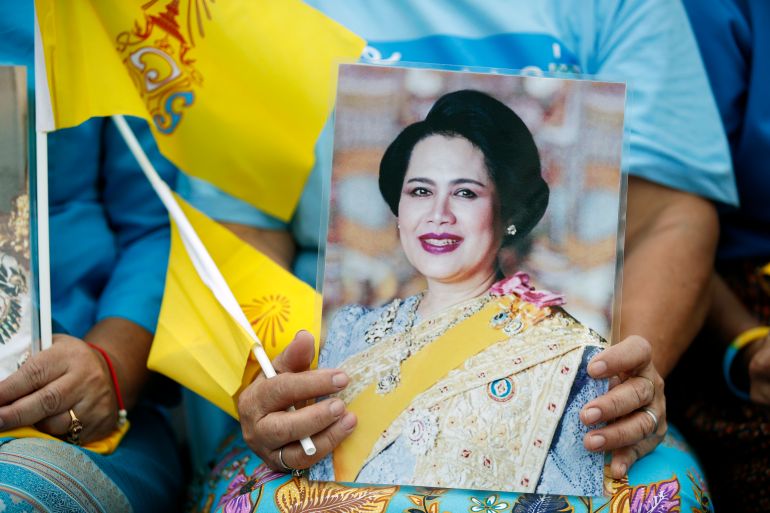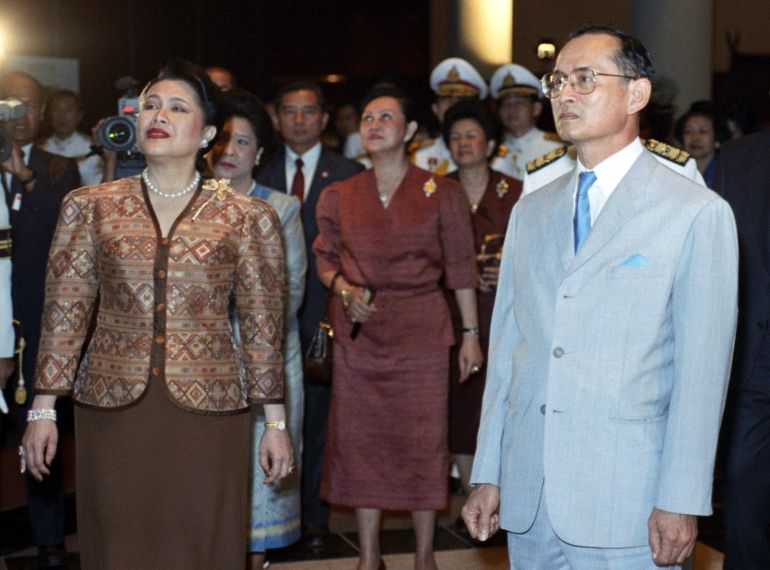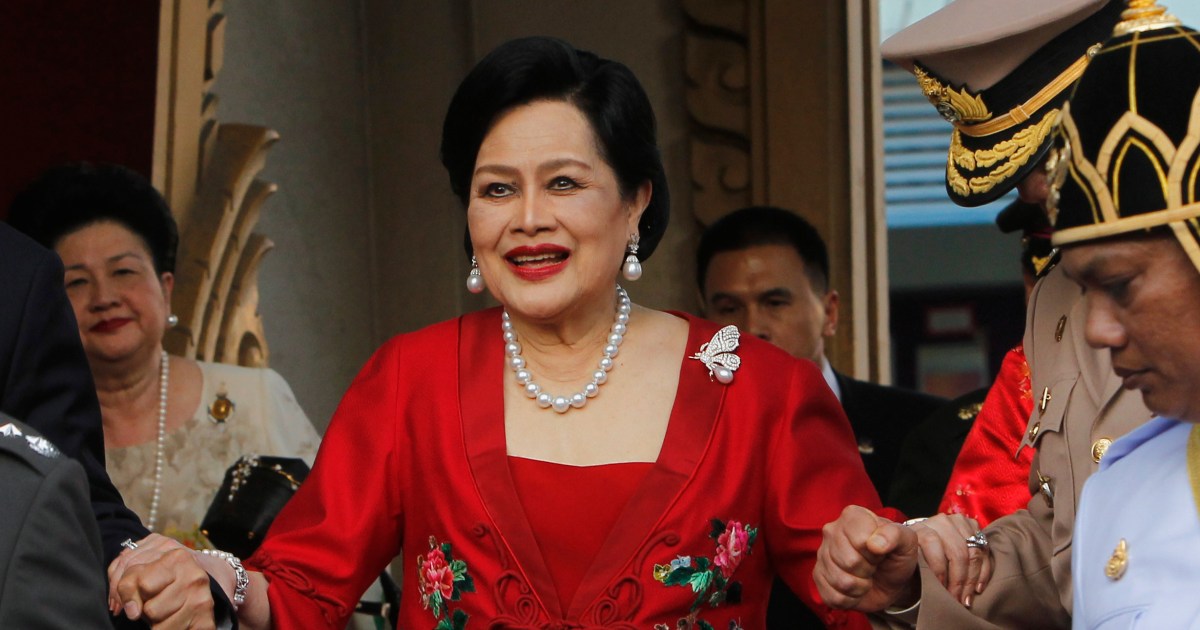DEVELOPING STORYDEVELOPING STORY,
Former Queen Sirikit, mother of Thailand’s current King Maha Vajiralongkorn, passed away on Friday night, the palace said.
Thailand is in mourning following the royal palace’s announcement that former Queen Sirikit, the mother of the current Thai King Maha Vajiralongkorn and wife of the nation’s late and longest-reigning monarch Bhumibol Adulyadej, has died at the age of 93.
“Her Majesty’s condition worsened until Friday and she passed away at 9:21pm … at Chulalongkorn Hospital at age 93,” the palace said in a statement on Saturday.
Recommended Stories list of 4 itemsend of list
Sirikit was married to King Bhumibol, who died in 2016 after seven decades on the throne.
Suffering from numerous ailments and rarely appearing in public since suffering a debilitating stroke in 2012, Sirikit had been hospitalised since September 2019.
She had been dealing with a blood infection since October 17, and despite her medical team’s efforts, her condition did not improve, according to reports.
Government spokesman Siripong Angkasakulkiat said that Thai Prime Minister Anutin Charnvirakul had cancelled his trip to the ASEAN leaders’ summit – set to be held in Malaysia from Sunday to Tuesday – following news of the Queen Mother’s death.
Thailand’s cabinet met on Saturday morning to discuss the funeral arrangements, while her remains will be enshrined in Bangkok’s Grand Palace.
 A Thai royalist holds a portrait of Thai Queen Mother Sirikit during a ceremony to celebrate her 93rd birthday at the Royal Ground Sanam Luang in Bangkok, Thailand, on August 12, 2025 [Rungroj Yongrit/EPA]
A Thai royalist holds a portrait of Thai Queen Mother Sirikit during a ceremony to celebrate her 93rd birthday at the Royal Ground Sanam Luang in Bangkok, Thailand, on August 12, 2025 [Rungroj Yongrit/EPA]
King Vajiralongkorn has decreed that a one-year official mourning period will be observed by members of the royal family and royal servants from the date of her passing, according to the Thai PBS media outlet.
Although overshadowed by the stature of her late husband and her son, now Thailand’s King Vajiralongkorn, Sirikit was a similarly beloved figure across much of the country, with her August 12 birthday celebrated as Mother’s Day.
Even during widespread student-led protests in 2020 and 2021 – which morphed into unprecedented public criticism of the monarchy and calls to repeal draconian lese-majeste laws – protesters’ ire was largely directed at the King rather than his parents.
The royal family is venerated in Thailand and the monarchy is protected by some of the world’s harshest laws banning criticism of the institution.
They are treated by many as semi-divine figures and lavished with glowing media coverage and gold-adorned portraits hanging in public spaces and private homes nationwide.
King Bhumibol’s death in 2016 was followed by intense displays of public grief and a yearlong official mourning period, with many Thais choosing to wear black for its duration.
Sirikit was born into a rich, aristocratic family in Bangkok in 1932, the year absolute monarchy was replaced by a constitutional system in Thailand.
She met Bhumibol in 1948 in Paris, where her father was the Thai ambassador and the 16-year-old Sirikit was studying music and languages.
The pair would marry two years later on April 28, 1950, a week before Bhumibol was officially crowned as Rama IX of the Chakri Dynasty.
Sirikit was given the royal title Somdet Phra Nang Chao Sirikit Phra Borommarachininat. The couple had four children – King Vajiralongkorn, and princesses Ubolratana, Sirindhorn and Chulabhorn.
During their early decades on the throne, the young Thai royals crisscrossed the world as goodwill ambassadors, forging personal ties with world leaders, with Sirikit becoming known internationally for her fashion sense.
By the 1970s, the royals had turned to Thailand’s domestic problems, setting up development programmes to address issues including rural poverty and opium addiction in hill tribes. Their charitable activities were televised each evening on the country’s Royal Bulletin.
 Thailand’s then-King Bhumibol Adulyadej, right, the world’s longest-reigning monarch, and Queen Sirikit, left, attend the opening ceremony of The Queen Sirikit National Convention Centre in Bangkok, Thailand in 1991 [File: Apichart Weerawong/Reuters]
Thailand’s then-King Bhumibol Adulyadej, right, the world’s longest-reigning monarch, and Queen Sirikit, left, attend the opening ceremony of The Queen Sirikit National Convention Centre in Bangkok, Thailand in 1991 [File: Apichart Weerawong/Reuters]

